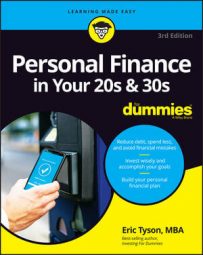And, whether all those education costs are behind you now or not, paying off student loans is probably in your future if you're like most young adults.
Tracking your student loans and making timely payments
You may have multiple types of loans with different loan servicers. It's your responsibility to keep track of them, provide changes of address as necessary, and pay them on time. All your federal student loans can be found through the National Student Loan Data System.Signing up for automatic electronic payments can knock 1/4 percent or more off of the interest rate on your student loans. And, autopayment on your loans will keep you current on those loans, benefit your credit score, and eliminate the chance of getting hit with late fees.
If you fall on hard times (for example, you get laid off from your job) and can't make a payment, communicate with your loan servicer and request a deferment. While your deferment request may be turned down if your circumstances are deemed not severe enough, you may qualify for forbearance, during which interest continues accumulating on your loans but you stop making payments for up to one year. If you fail to get in touch and communicate with your loan servicer when you're having problems making payments, your credit report will show that you are deliquent on your loans and your credit score will suffer greatly.Prioritizing the payback of student loans
How fast you pay back student loans should be a function of a number of factors. First, if you plan on doing more schooling and possibly applying for any type of financial aid, it generally makes sense to pay the minimum possible on your loans; the more debt you have outstanding, the better positioned you will be to see your future education bills reduced. You can see your repayment options on the Student Aid website.You should be aware of another quirky feature of federal student loans if you're contemplating working for certain nonprofit or public-sector employers. The Public Service Loan Forgiveness Program may help wipe out your remaining federal student debt after you've made ten years of repayments if you work for a qualifying employer such as the federal, state, or local government or a nonprofit organization covered under Section 501(c)(3) of the Internal Revenue Code, or if you're serving in a full-time AmeriCorps or Peace Corps position.
When weighing which student loans to pay back faster, you should consider the interest rate on your loans. If you have extra cash and would like to pay back your loans faster, start with the ones with the highest interest rate. If the overall interest rates on your student loans are relatively low, don't miss out on the tax benefits you can earn by funding a retirement savings account, especially if that retirement account offers you free matching money from your employer.
If you're sure you are finished with your higher education and associated costs and are debating paying down your student loans faster than required versus investing your extra cash, do a comparison of the interest cost on your most costly loans versus the likely investment returns if you were to invest that money. If your student loan interest is 4 percent and you are reasonably confident that you can earn, say, 6 to 8 percent by investing your extra cash, you could go for the investment.

